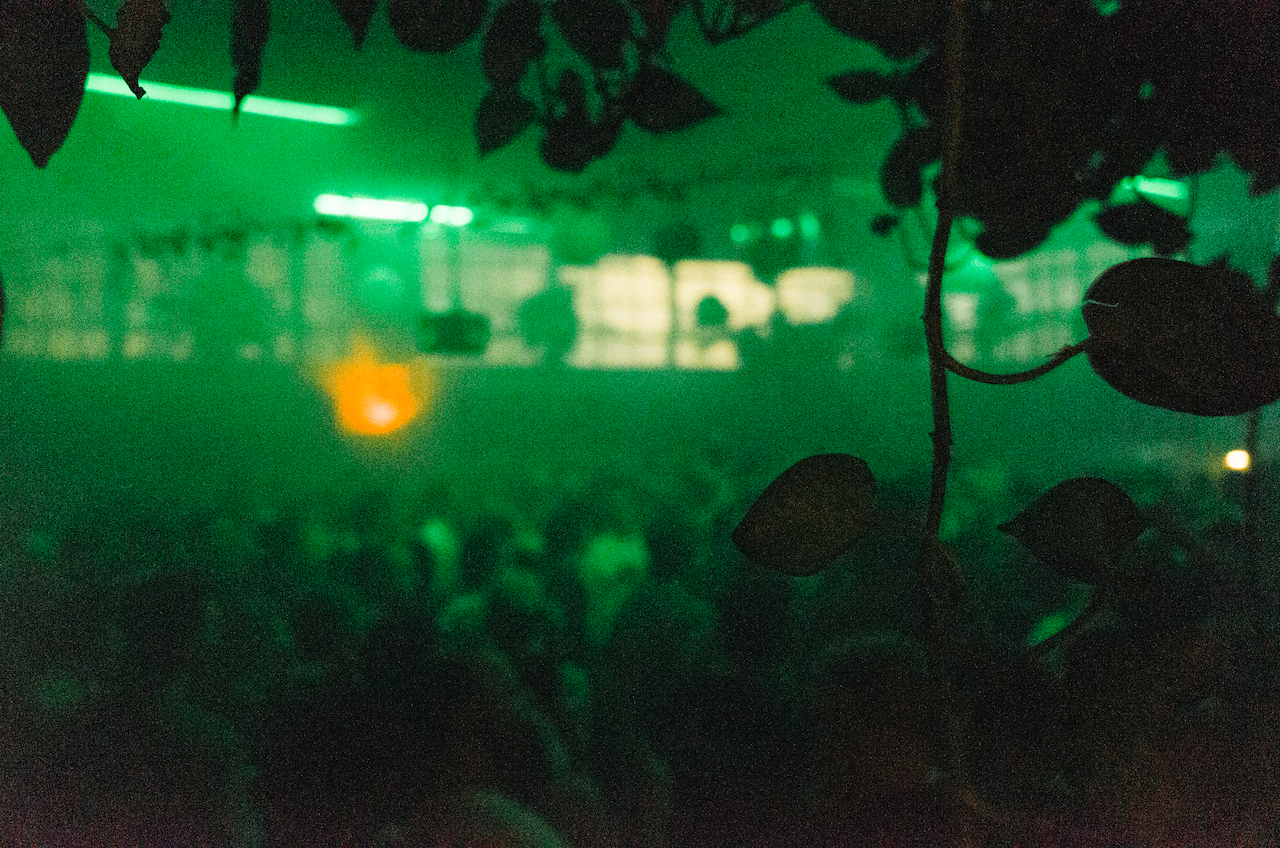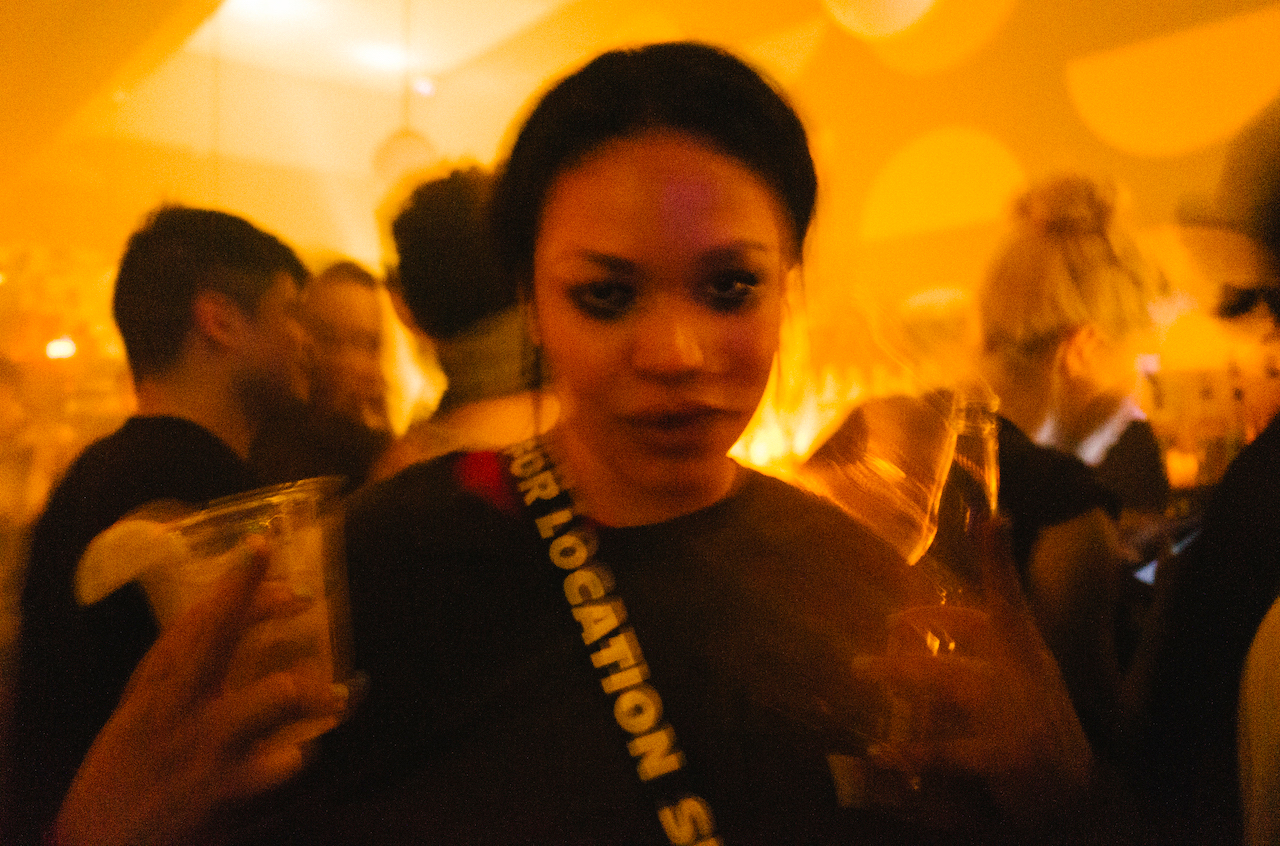- Kiana Mickles takes in the second edition of a US festival celebrating black electronic music.
- Reflecting on dweller 2020, the Discwoman cofounder and the festival's mastermind, Frankie Decaiza Hutchinson, said via Instagram, "What was proven was the centering of black artists has a direct effect on the rave space in many ways. One of the primary effects was you can sell out shows... Another primary effect was the energy at these events, it felt familial and like home."
Last year, Brooklyn's only festival celebrating black electronic music was founded with humble beginnings and daring ambition, developing into six days of parties at Bushwick's Bossa Nova Civic Club. A year later, the festival boasted several new venues, evolving into a club-hopping series throughout New York's underground for its devoted attendees. The biggest draw, though, was the lineups—in a little less than a week, I saw revelatory sets from DJ Assault, Analog Soul, DJ Stingray and more.
One compelling question framed dweller's opening event: who does techno belong to? For an industry still grappling with the widespread historical amnesia of the genre's black origins, the subject matter couldn't have been more pertinent. Moderated by Hutchinson, the talk rallied DJ Syanide, Camille Cain Drummond and Deforrest Brown, Jr. to discuss spatial politics, rave commercialization, the black origins of techno and the current political state of the electronic music scene. Snippets of the experience, which packed dozens shoulder to shoulder inside (and some lingering outside) Commend NYC's intimate quarters, would return to me like a reliable ground bass throughout the festival.
The night then moved to Bossa Nova, where the Half Moon representatives DJ Swisha and Kush Jones held down an extended back-to-back of footwork, club and electro, with unexpected transitions into trap in the later hours. The intimate venue, which typically attracts a sparser crowd on a Wednesday night, was jammed with outlandish characters. One personal favorite was a tall, boisterous man who intermittently bellowed before every drop, "Everybody! Fuck that shit up!" In many ways, the crowd carried the warmth of the ideal Bossa Nova night, with locals and club heads mingling and writhing in the dim-lit intimacy of the modest bar.
The techno show on Friday night found me not in a club, but within the walls of a punky, shuttered-up Brooklyn warehouse. The extensive lineup joined the collectives Alkhemy and Discwoman, with special appearances from the established techno icons FBK, Madison Moore and DJ Assault. When I arrived, I was told I'd instantly know when DJ Assault was on—he'd arrived with a mic. Still, I wasn't prepared for the Ghettotech hero's crafty entrance on the decks. He completely flipped Madison Moore's last track on its head, deftly and effortlessly scratching it into a jacking rhythm. This was the most raved-about set of the night, something akin to a scratching masterclass. The only snag was the sound, which even with ear plugs was grating and harsh. But certain compromises are forgivable when you’re working with purist DIY settings.
On Saturday, DJ Stingray and Analog Soul played all night at Nowadays. When Stingray stepped into the booth at around 2 AM, no one could contain their glee. In fact, early into the set, I noticed two girls up front had silently peeled off their shirts, lost in a slow sway. The venue's buttery sound and tropical, incense-infused atmosphere set the foundations for Analog Soul, who mesmerised with a closing set of early house, electro and techno. Over the course of the night, I said goodbye to several people only for them to inevitably wander back to the dance floor during a remarkable transition. At one point, the duo slipped from thumping techno into a suspended dub track that seemed to slow time.
For its second edition, dweller went from hosting short lineups at a single nightclub to genre-expansive, multi-venue bookings that placed legends alongside rising local talent. The variety of venues allowed for the more intentional curation of each night, resulting in that coveted moment when the crowd, the music and the space all align. The success of the festival also drives home an educational point, showing how joyous and freeing the dance floor could be if black people weren't tokenized, but valued as the rightful owners of techno.
Photo credit /
Guarionex Rodriguez, Jr
 On Saturday, DJ Stingray and Analog Soul played all night at Nowadays. When Stingray stepped into the booth at around 2 AM, no one could contain their glee. In fact, early into the set, I noticed two girls up front had silently peeled off their shirts, lost in a slow sway. The venue's buttery sound and tropical, incense-infused atmosphere set the foundations for Analog Soul, who mesmerised with a closing set of early house, electro and techno. Over the course of the night, I said goodbye to several people only for them to inevitably wander back to the dance floor during a remarkable transition. At one point, the duo slipped from thumping techno into a suspended dub track that seemed to slow time. For its second edition, dweller went from hosting short lineups at a single nightclub to genre-expansive, multi-venue bookings that placed legends alongside rising local talent. The variety of venues allowed for the more intentional curation of each night, resulting in that coveted moment when the crowd, the music and the space all align. The success of the festival also drives home an educational point, showing how joyous and freeing the dance floor could be if black people weren't tokenized, but valued as the rightful owners of techno. Photo credit / Guarionex Rodriguez, Jr
On Saturday, DJ Stingray and Analog Soul played all night at Nowadays. When Stingray stepped into the booth at around 2 AM, no one could contain their glee. In fact, early into the set, I noticed two girls up front had silently peeled off their shirts, lost in a slow sway. The venue's buttery sound and tropical, incense-infused atmosphere set the foundations for Analog Soul, who mesmerised with a closing set of early house, electro and techno. Over the course of the night, I said goodbye to several people only for them to inevitably wander back to the dance floor during a remarkable transition. At one point, the duo slipped from thumping techno into a suspended dub track that seemed to slow time. For its second edition, dweller went from hosting short lineups at a single nightclub to genre-expansive, multi-venue bookings that placed legends alongside rising local talent. The variety of venues allowed for the more intentional curation of each night, resulting in that coveted moment when the crowd, the music and the space all align. The success of the festival also drives home an educational point, showing how joyous and freeing the dance floor could be if black people weren't tokenized, but valued as the rightful owners of techno. Photo credit / Guarionex Rodriguez, Jr